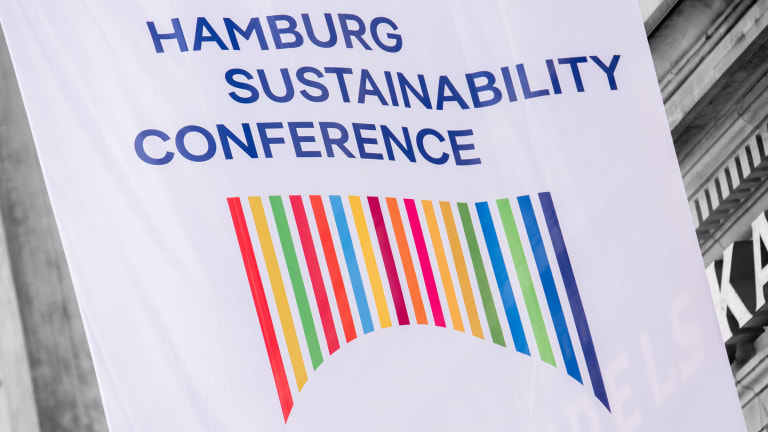
For Mali to revive its ailing economy and put development progress back on track after over a year of conflict and instability, private sector engagement through investments and public-private partnerships is an absolute must.
That’s one of the conclusions of a recent donor conference for Mali held in Brussels, where donors emphasized the importance of the private sector in the sustainable long-term revival of the African nation. The conference marked the second convention of the international aid community in reaffirming its commitment to the rebuilding of Mali.
In a joint statement, the group of donors highlighted Mali’s progress through several ongoing reforms to strengthen the rebuilding process:
“[The meeting] noted significant progress both in terms of the release of aid to [Mali] and with regard to the reforms announced and committed to by the Malian authorities to restore long-term peace and develop the economy.”
The groups of donors, spearheaded by the European Union, has so far released around 74 percent of the €3.29 billion pledged in May 2013 in the form of signed agreements, including donations and loans. The assistance, according to the joint statement, has helped enable Mali to fully restore constitutional order following the national elections in July 2013.
READ:After Mali’s elections, tempered optimism for a fresh start
Mali at a crossroads
But will the unwavering commitment of the international aid community to the plight of Mali bear fruit or go to waste?
One governance expert believes that Mali stands at a crossroads. One path could lead to “greater peace, stability and development.” The other could lead to continued “insecurity, poor governance, and social fragmentation,” Surendrini Wijeyaratne, Oxfam governance coordinator in Bamako, told Devex.
“Donors and development partners can play a positive role in ensuring Mali chooses the path by ensuring their aid commitments are not only fulfilled but are also targeted toward areas essential for development and stability.”
And she stressed the role of the private sector as an “important actor,” but cautioned that “private sector investments in Mali [should be] done in a way that supports poor women and men to move out of poverty.”
According to Wijeyaratne, providing guidance is much more efficient and effective than forcing policies and reforms down people’s throats, asserting that people should be active agents of their own development.
“International development partners have an equal responsibility to ensure they are consulting with Malian civil society and — whenever possible — directly with communities,” she explained. “Donors need to also respect the right of citizens to participate in decisions affecting their lives, [including] the formulation and implementation of aid programs.”
Looking towards energy and business
For the private sector to fully flourish, the donor conference participants concluded that it is essential for the national government to lay down and implement reforms to drastically improve Mali’s business and investment climate, particularly by strengthening legal certainty for businesses as well as ensuring easier access to loans through the reform of the microfinance sector.
One of the economic sectors seen by the international development community to fully benefit in the planned engagement of private firms is the energy sector. Energy access has been a major issue in Mali, where about three-quarters of the population lack access to a reliable electricity supply despite having an enormous solar energy potential.
In a press conference following the donor conference, Mali’s minister for planning and forecasting Cheikna Seydi Ahmadi Diawara said renewable energy — including solar — could boost the nation’s economic progress.
“For solar energy, Mali has great potential, [and we] know that it is an energy that is clean. Mali has to capitalize on this potential. It’s part of the process to improve the energy mix,” the government official said.
This was echoed by Mustapha Ben Barka, Mali’s minister for private initiative and investment promotion, who noted the enthusiasm for the private sector’s plans for the country, with energy as a key sector.
“The big challenge for Mali [is that we] have resources [so] we do not need [to] import,” he explained. “Today, we are approached by private developers who come to develop [energy] projects. We strongly orient [projects] towards renewable energy, mainly hydro and solar, through PPPs.”
However, despite the importance of the private sector in developing Mali’s economy, Wijeyeratne said that these private firms should keep well aware that the Malian people’s welfare should always come first before profit. She also stressed the potential of adequate taxation measures being in place:
“Companies should pay their fair share of taxes and those revenues used by the government to improve and increase access to public services. It is critical that the government has sufficient revenues to drive its own development agenda and not be dependent on foreign aid to support quality public services,” she said.
Decentralization and good governance
Also up for discussion at the donor conference was the issue of decentralization and the transfer of capacities to local government units to accelerate progress on development, as well as fostering good governance to harness sustainable progress.
For Wijeyeratne, decentralization has two advantages: increasing the reach and range of development programs and acting as a catalyst for reconciliation.
“Improving decentralization is key for improving development impacts at local levels and having citizens see tangible results of the government’s efforts to provide public services,” she explained. “[This will] affect whether citizens perceive their government positively or negatively.”
Wijeyeratne added: “[It] is also important for reconciliation. As state institutions return to northern Mali, it is important local communities see these authorities and institutions as being legitimate and helpful in their day-to-day lives.”
Looking ahead to the next donor conference for Mali in May, it is clear that observers will be keeping a close eye on both public and private sector developments. And as Mali pulls away from that crossroads, many will be waiting to see in which direction the country goes next.
Are you optimistic that reforms will lead to results on the ground in Mali? Will the private sector gain the traction it needs? And will donors heed calls for a strong transparency and accountability charter? Have your say by commenting below.
Read more development aid news online, and subscribe to The Development Newswire to receive top international development headlines from the world’s leading donors, news sources and opinion leaders — emailed to you FREE every business day.
See more:




